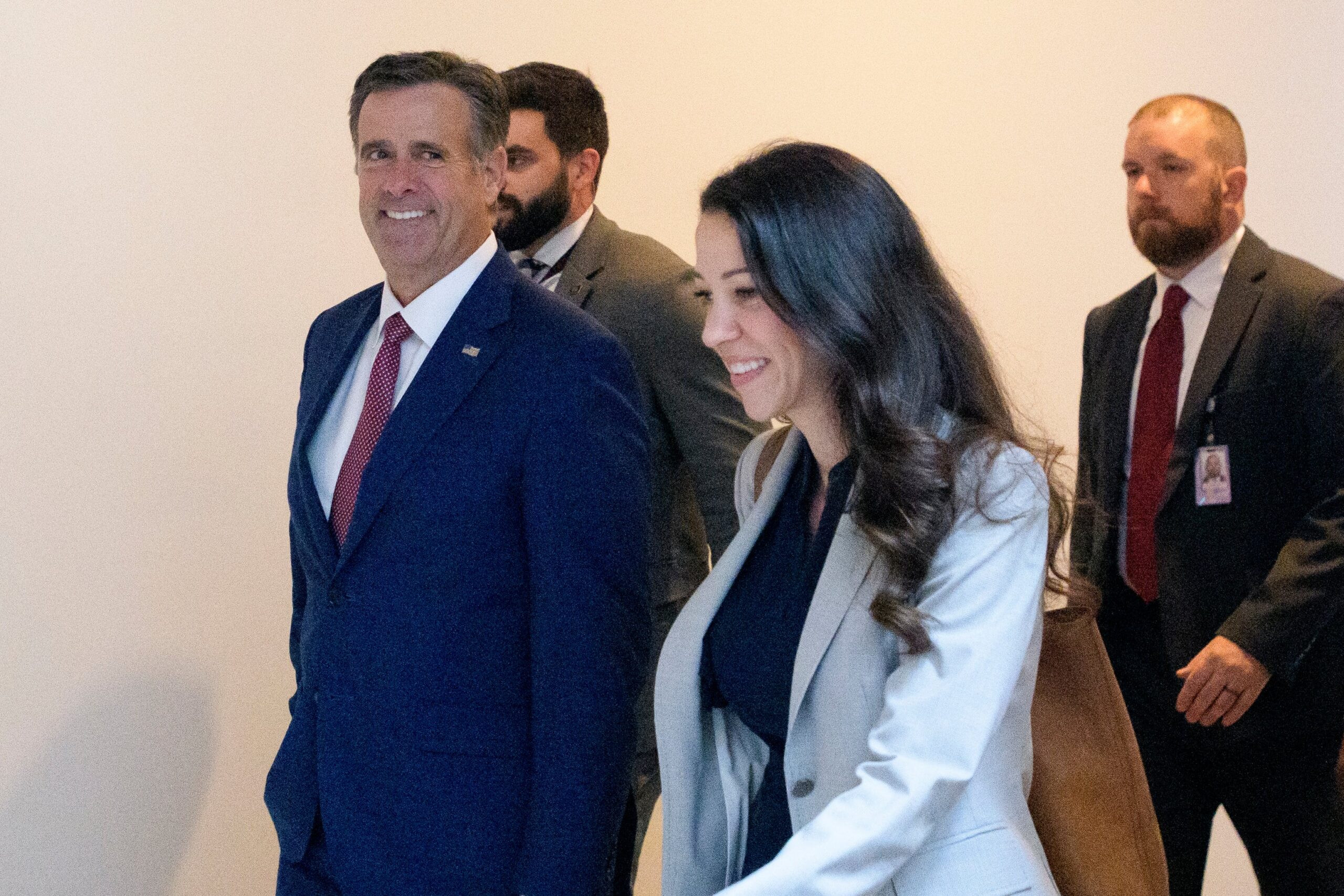WASHINGTON—A U.S. official said Sunday that CIA Director John Ratcliffe informed dubious U.S. legislators that American military attacks damaged Iran’s only metal conversion facility, delivering a massive blow to Tehran’s nuclear program that would take years to recover from.
Ratcliffe explained the significance of the strikes on the metal conversion facility at a secret hearing for U.S. legislators last week, according to the official, who spoke on condition of anonymity to discuss the sensitive intelligence.
Information of the private briefings came to light as President Donald Trump and his team continue to deny inquiries from Democratic senators and others regarding the extent to which the strikes had harmed Iran prior to last Tuesday’s ceasefire with Israel.
Trump claimed in an appearance on Fox News Channel’s Sunday Morning Futures that it was obliterating like no one had ever seen it before. And for a while at least, that meant that their nuclear aspirations were over.
The vast majority of Iran’s accumulated enriched uranium, according to the intelligence community, is probably still buried beneath the debris at Isfahan and Fordo, two of the three major nuclear facilities that the United States has hit, Ratcliffe also informed legislators.
According to the official, Tehran’s potential to develop a bomb for years to come has been essentially eliminated by the loss of its metal conversion facility, even if the uranium is still intact.
The head of the International Atomic Energy Agency, Rafael Grossi, stated on CBS’ Face the Nation on Sunday that the three Iranian sites that had the capacity to treat, convert, and enrich uranium had been significantly damaged.
He did, however, add that some are still standing and that they can resume this if they so choose due of their remaining capabilities. He claimed that allowing inspectors into Iran is the key to determining the entire extent of the harm.
“Frankly speaking, one cannot claim that everything has disappeared, and there is nothing there,” Grossi stated.
Trump has maintained that Iran’s nuclear program was destroyed, even hours after three important facilities were hit by American bunker-buster bombs and Tomahawk missiles.
According to Pete Hegseth, his defense secretary, they were destroyed.Meanwhile, the U.S. Defense Intelligence Agency released a preliminary report stating that while the strikes caused significant damage to the Fordo, Natanz, and Isfahan sites, they did not completely destroy the facilities.
Grossi claims that while it is evident that there has been significant damage as a result of Israeli and American strikes, the harm is not complete. Israel asserts that it has put Iran’s nuclear development many years behind schedule.
The Isfahan nuclear site was home to the metal conversion facility that Ratcliffe claimed was destroyed. Metallization, the process of turning enriched uranium gas into dense metal, is a crucial stage in creating a bomb’s explosive core.
In remarks made during last week’s NATO meeting, Secretary of State Marco Rubio also implied that it was likely that the metal conversion facility had been damaged by U.S. strikes.
“A nuclear weapon cannot be produced without a conversion facility,” Rubio stated. “On the map, we are unable to locate its current location or its previous location. The entire thing is blackened out, so you can’t even tell where it used to be. It is no longer there. It’s completely destroyed.
During the congressional briefing, the CIA director also emphasized to lawmakers how the 12-day attack destroyed Iran’s air defense. According to the insider, Israeli strikes against which Iran presently lacks the resources to respond could easily frustrate any attempt by Iran to reconstitute its nuclear program.
Some Israeli authorities’ assessments of battle damage seemed to align with Ratcliffe’s briefing to Congress on the U.S. conclusions.
According to a senior Israeli military officer who was not allowed to discuss the issue publicly, Israeli officials have concluded that Iran’s capacity to enrich uranium to a weapons-grade level was eliminated for an extended period of time.
According to the Israeli assessment, the strikes that killed important scientists, destroyed Iran’s missile production industry, and battered Iran’s aerial defense system also seriously harmed Tehran’s nuclear program.
Iran still has the know-how, according to Grossi and several Democrats.
Grossi emphasized the necessity of reaching a diplomatic agreement about the nation’s nuclear program, saying, “You cannot undo the knowledge that you have or the capacities that you have.”
___
This article was written by Sam Mednick, an AP journalist in Tel Aviv, Israel.
